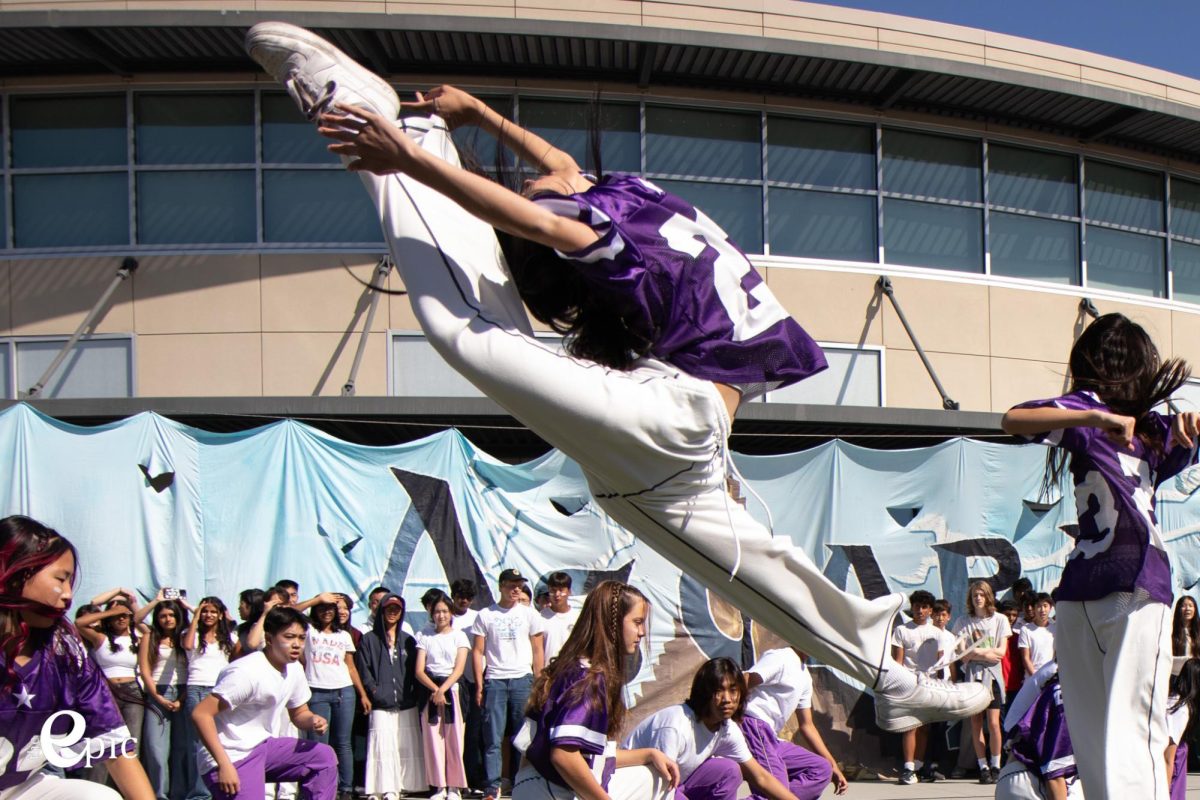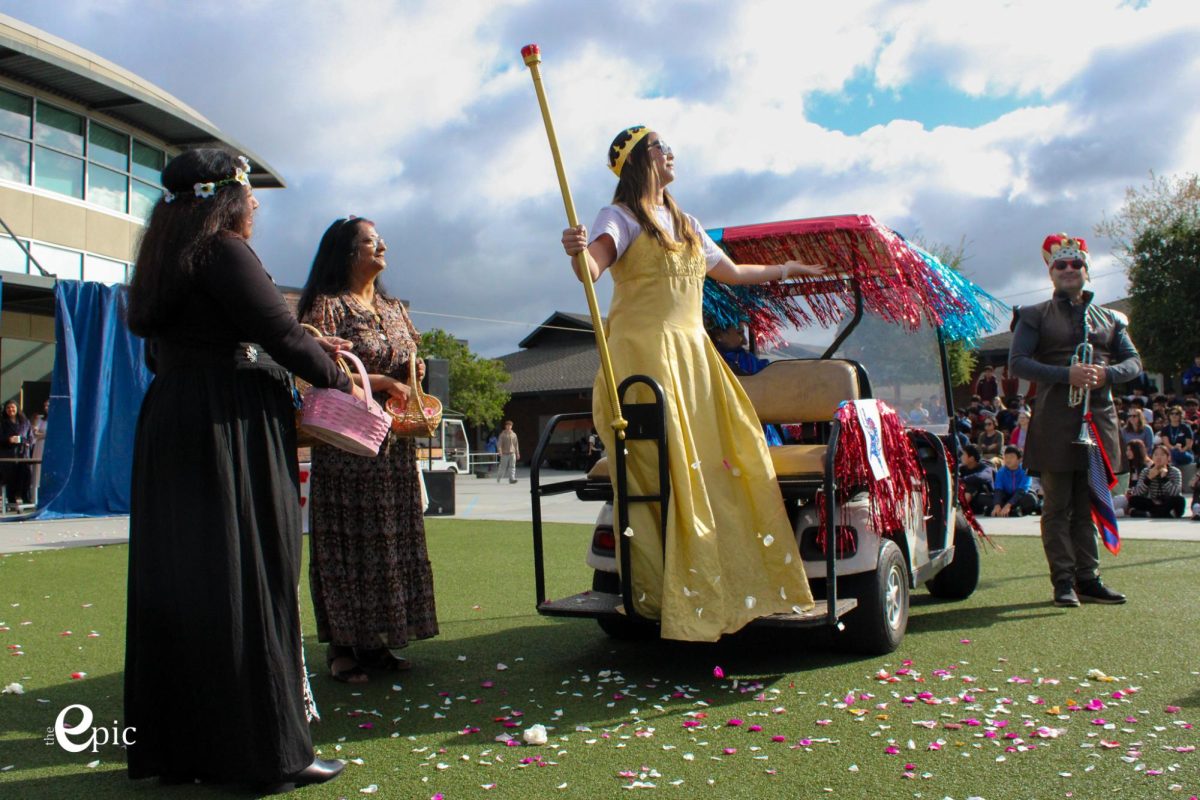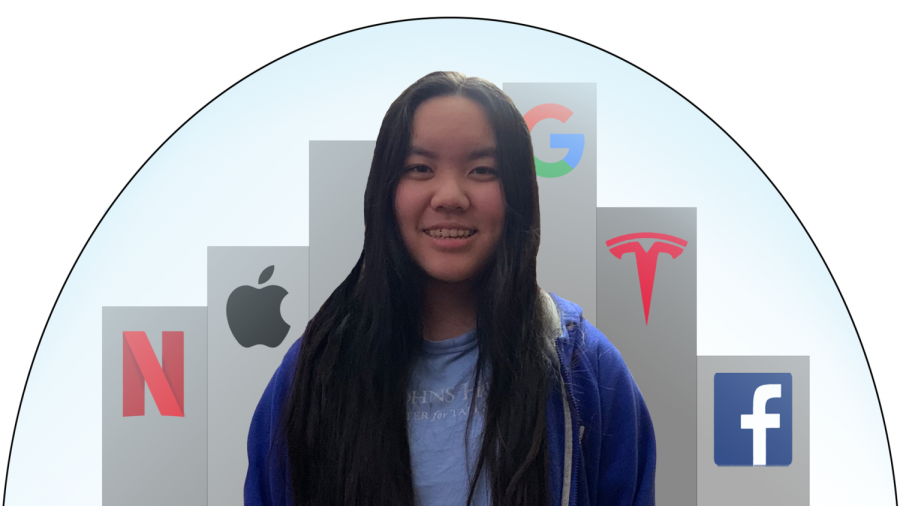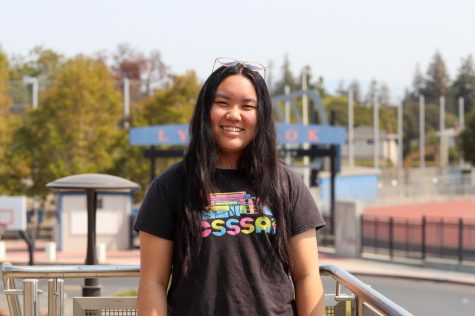Popping the Silicon Valley bubble: My experience as an Asian American minority
Graphic illustration by Lillian Fu
My experience as an Asian American minority had been limited by the environment I grew up in until I spent a few weeks in Tennessee for a summer program.
December 9, 2020
In the summer before tenth grade, I spent two weeks living in Tennessee for a creative writing program. Most of my memories of that time are pleasant: the afternoon sun dimming through the classroom windows, watching Mary Poppins in the lounge room with my friends, seeing fireflies for the first time in the campus woods. But whenever I think back on those two weeks now, what I first and foremost recall is the echo of insecurity, and the constant prickle of anxiety under my skin that followed me everywhere I went while I was there.
In Tennessee, unsurprisingly, most of my classmates were white. Of course, I had anticipated this fact in theory beforehand, but living it was different. I felt as if I was, in my peers’ eyes, primarily defined by my skin color, East Asian features and all the preconceptions they held because of my ethnicity. For the first time in my life, I lived as a minority.
I’ve grown up my entire life in the bubble of Silicon Valley. Here, in the city of Cupertino, being Asian was normal. The knowledge that I live in a nation where most of the people don’t look like me or share the same culture and history as me was not obvious to me in my childhood. It also wasn’t exactly dinner conversation with my parents, who showed no visible signs of being affected by their position in America’s complex racial landscape. So mostly, I learned about what being Asian in most of America truly meant through external sources such as the media, rather than through any personal experience.
I can’t pinpoint a single moment of realization that I was a minority, like learning the times table or a new vocabulary word. But I remember thinking, sometime in either kindergarten or elementary school, how boring it was to be Chinese since I was surrounded by mostly Asian peers. I have another vivid memory of watching a movie in the old Vallco AMC, staring up at the big screen and thinking that people like me, with faces and last names like mine, don’t belong up there. I had never seen an Asian person in movies, TV, or even the news before. Fame was something inaccessible to someone of my skin color. I accepted this realization without emotion or fanfare; it wasn’t an epiphany, but an affirmation of a truth I’d never put to words before then.
Everyone around me likely reached the same conclusion at around the same time. As we entered middle school, there was a growing awareness, unspoken of but there, of how our community was different from the rest of America. Teachers started using the word “bubble” when they talked about this area, and we started watching more TV and movies that portrayed scenes of contemporary American life we could not connect to. At the same time, we were exposed fully to the microculture of our community, one based on achievement and competition. We had little of the conflicts that defined the turbulence of adolescence for American teens, and instead found ourselves completely embroiled in the conflicts specific to our “bubble.”
So I knew, going into those two weeks at Tennessee, what I was going to see—in theory. And that theory did little to prepare me for the actual experience.
I’ve always had my insecurities, as any adolescent does, but I’d never really been so aware of my own skin as I was in those first few days. I couldn’t help but notice how I stood out, how the first thing my Caucasian classmates would think of when they saw me was that I am Asian. I felt like a tourist, even though I was still in the country I was born in. My mind circled that awareness in constant cycles of anxiety. They were looking at me. They were ignoring me. That smile looked forced.
My smiles were forced, certainly, and I clung to small talk desperately. I remember sitting in one of the lounge rooms on the first day with my roommate and a group of friends she had somehow already gathered. I sat there, listening to them talk about their boarding schools, which I barely knew still existed in America, hoping in equal measure that they would ask me something and that they would forget that I exist. Mostly, the latter happened, and I was grateful for it; I don’t know what I would’ve said to them if they had asked. There seemed to be no common ground between us. I didn’t know about a high school life with parties and relationships and classmates who were concerned about parties and relationships; my high school life was about grades and stress and competition in a community built on those things as its pillars.
Needless to say, I did not stick with them for long. Instead, I fell in with two other Chinese girls, one who lived in Hong Kong and one who used to live in Hong Kong. And though it seemed I had successfully retreated back to the familiar, that insecurity came to bite me again. Now, we were three of about ten Asians in the program, and we were together all the time. On top of that, we were all quiet, introverted people in class. We were a walking stereotype, and I was sure everyone thought so when they looked at us. I was ashamed.
I don’t know what I was embarrassed of, really. Perhaps part of it was that I was playing into the stereotype. I always felt pressured to prove something while I was there, though I don’t really know what, and stereotypes had never really bothered me before then. And then a thought crossed my mind: maybe, just maybe, I was ashamed of my race itself.
The thought sickened me the moment it registered. Growing up where I had, I never had reason to feel shame for my culture before, like so many other Asian Americans have. I grew up as the majority, as the norm. I had never been ridiculed for my school lunches of rice and Chinese dishes, been embarrassed by my parents’ broken English, or even just sat in a classroom as the only Asian student before.
And that’s just the thing. Though mostly it is something to be grateful for, growing up in the bubble of Silicon Valley also robbed me of key common experiences that define what it means to be Asian American in the modern day. There’s a gap between the world I live in inside the bubble and the one that exists outside that I hadn’t been able to quantify before those two weeks in Tennessee. It wasn’t just that I didn’t relate to my classmates’ lives or that I didn’t know how to interact with them, it was that I didn’t know how to be Asian American in the way they were used to. I had never really lived as a minority in America at all.
Looking back, all of this seems painfully obvious now. I had always known that the Silicon Valley experience is majorly different to the common American experience, so it follows easily that being thrown into an environment more indicative of the general demographic of America would come with its own culture shock. But I’d always been so focused on my perceived problems in this community here that I never really recognized how it had protected me as well. All I’d ever thought about was getting out, going away to college and adult life outside of the bubble, not realizing how the environment of my home had already ruined me for anywhere else.
That summer, I had a conversation with my brother who was back from his college in Atlanta. He’d had the same goal of getting away for all of his adolescence, and yet after achieving that goal, he told me that when it came time to decide which college I would go to, I should stick with one in California. Atlanta had not been kind to him. I’m similar to him in most ways, so it’s no surprise that he had a difficult time adjusting to the new environment as well. It was no great shock, but it was sobering nonetheless; in reality, I’d obsessed over the idea of getting out without seriously thinking about what comes after that at all.
All these factors shook the certainty I had in my desire to try living outside of my hometown. Ultimately, that certainty didn’t break, but it did change. Now, instead of purely wanting to escape from this bubble, my motivation has grown to include a desire to learn. To learn about this country. To learn my place in it. And after that, to build a new, personal confidence informed by consciousness of the society around me.
Being the child of immigrants, neither this nation nor the one of my heritage had ever really been mine. But, as long as I’ve decided to spend my life in America, I want to know what it is to live here as who I am: as an Asian American, and as a minority.


































































